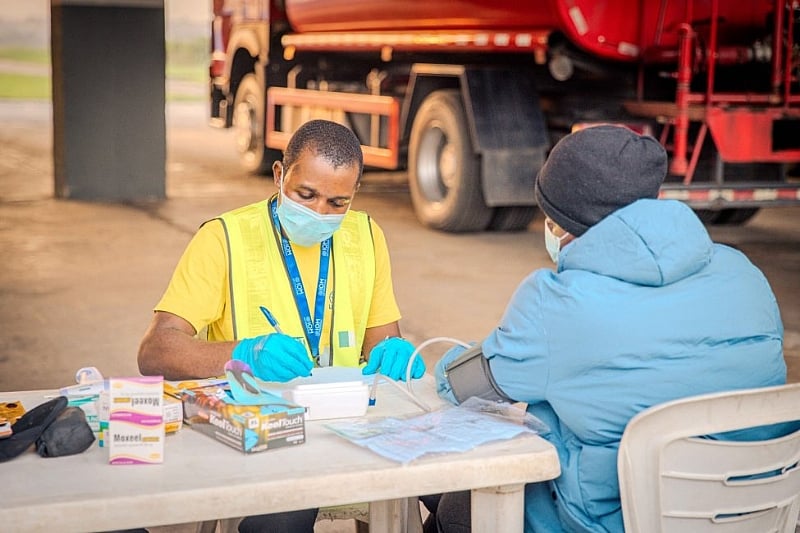The International Organization for Migration (IOM) has intensified its efforts to curb the spread of Mpox in West and Central Africa, focusing on strengthening border health systems and ensuring mobile and remote communities are included in national and regional response plans. Recognizing the vulnerability of these populations, IOM is working closely with governments and international partners, deploying expertise, surge teams, and resources to enhance coordination, bolster border surveillance, and conduct population mapping to guide targeted interventions in high-risk areas and among frequently moving communities. This approach emphasizes health as a universal right, particularly for those on the move, and stresses the need to equip frontline responders with necessary tools and training.
Border regions in West and Central Africa are especially susceptible to the rapid spread of infectious diseases due to the confluence of high cross-border movement, porous borders, and limited healthcare infrastructure. The existing challenges in surveillance systems and resource constraints further complicate effective detection and containment, making targeted interventions and strong cross-border collaborations crucial for safeguarding both local and mobile populations. IOM’s established presence in these border areas allows the organization to respond swiftly and in coordination with local systems, strengthening surveillance and enhancing preparedness and response capacities. The organization’s focus remains on proactive measures to prevent outbreaks and mitigate their impact should they occur.
IOM’s activities across West Africa demonstrate a multi-faceted approach to strengthening health security and preparedness at points of entry. In Guinea, over 166,000 travelers have been screened and vaccinated by community agents deployed at various entry points. In Sierra Leone, a collaborative mobility mapping exercise with national authorities is informing targeted prevention and outreach strategies. Togo has seen a bolstering of disease surveillance and referral systems with the deployment of trained community volunteers at key entry points. Meanwhile, in Ghana, IOM, WHO, and other partners have engaged in strategic planning aligned with the Health, Border and Mobility Management Framework, focusing on preparedness measures, public health safeguards, and ensuring safe and orderly mobility.
The Health, Border and Mobility Management Framework plays a pivotal role in guiding stakeholders’ understanding of how human mobility intertwines with communicable disease preparedness and response, both within and across borders. It contributes to enhanced surveillance and management of disease outbreaks through a unified health and mobility management approach and supports the development of health systems that are sensitive to the dynamics of human mobility. This comprehensive framework aims to improve coordination, resource allocation, and overall effectiveness in addressing health challenges related to population movements.
While the declaration of Mpox as a public health emergency of international concern has been lifted, the threat persists, particularly in border regions due to the factors mentioned earlier. The vulnerability of these areas underscores the need for continued vigilance and sustained efforts to prevent resurgence and further spread. Despite the ongoing need, funding for IOM’s preparedness and response initiatives in Africa remains significantly underfunded, hindering the ability to sustain critical interventions, protect vulnerable communities, and strengthen health systems. This highlights the urgent need for increased support from donors and partners to ensure effective Mpox control and prevention measures are maintained.
The ongoing work of IOM and its partners demonstrates a commitment to comprehensive and inclusive health security in West and Central Africa. Addressing the unique challenges posed by population mobility, particularly in border regions, is paramount to containing the spread of infectious diseases like Mpox. The emphasis on community engagement, cross-border collaboration, and robust surveillance systems highlights a proactive and strategic approach to safeguarding public health. However, the significant funding gap poses a serious threat to the sustainability of these vital efforts, emphasizing the urgent need for increased financial support to protect vulnerable populations and strengthen health systems in the region.














